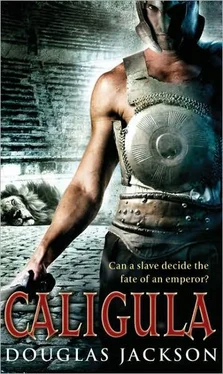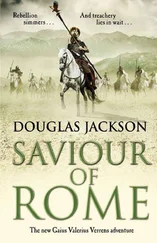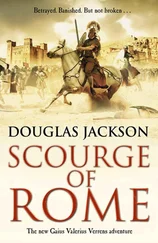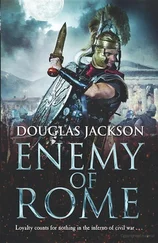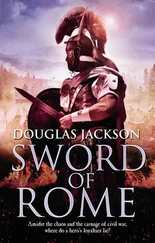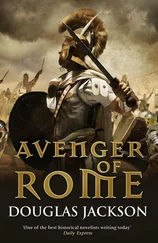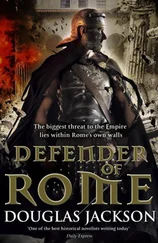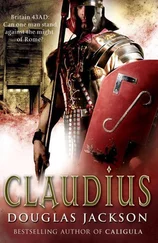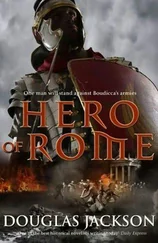Douglas Jackson - Caligula
Здесь есть возможность читать онлайн «Douglas Jackson - Caligula» весь текст электронной книги совершенно бесплатно (целиком полную версию без сокращений). В некоторых случаях можно слушать аудио, скачать через торрент в формате fb2 и присутствует краткое содержание. Жанр: Исторические приключения, на английском языке. Описание произведения, (предисловие) а так же отзывы посетителей доступны на портале библиотеки ЛибКат.
- Название:Caligula
- Автор:
- Жанр:
- Год:неизвестен
- ISBN:нет данных
- Рейтинг книги:3 / 5. Голосов: 1
-
Избранное:Добавить в избранное
- Отзывы:
-
Ваша оценка:
- 60
- 1
- 2
- 3
- 4
- 5
Caligula: краткое содержание, описание и аннотация
Предлагаем к чтению аннотацию, описание, краткое содержание или предисловие (зависит от того, что написал сам автор книги «Caligula»). Если вы не нашли необходимую информацию о книге — напишите в комментариях, мы постараемся отыскать её.
Caligula — читать онлайн бесплатно полную книгу (весь текст) целиком
Ниже представлен текст книги, разбитый по страницам. Система сохранения места последней прочитанной страницы, позволяет с удобством читать онлайн бесплатно книгу «Caligula», без необходимости каждый раз заново искать на чём Вы остановились. Поставьте закладку, и сможете в любой момент перейти на страницу, на которой закончили чтение.
Интервал:
Закладка:
He removed an eye with a spearing thrust. A casual slash chopped off the other ear. As the tormented animal tried to close with him, he flayed her, expertly replacing the dark rosettes which had made her one of nature's most beautiful animals with obscene patches of scarlet flesh and white bone. Soon, Circe was swaying on her feet, exhausted by her efforts and by the loss of the blood which dripped into the packed earth.
The gladiator turned to walk away. Somehow Circe found the strength to break into a tired loping trot and then a full-blown charge that carried her towards the fighter's exposed back.
The crowd screamed a warning, but Rufus knew the gladiator had no need of it. He had choreographed this moment, just as he had choreographed every second of the one-sided contest. He turned in a single graceful movement with the sword already extended in front of him, and sank the long blade into the leaping animal's throat, driving a yard of iron down the length of Circe's body. The blow split her heart, killing her instantly.
Rufus, sobbing now, but still drawn irresistibly to the dreadful slaughterhouse of the arena, could visualize the grinning, triumphant features behind the mask as the gladiator marched from the arena, acknowledging the tributes of the crowd. But as he traded the harsh glare of the arena for the shade of the corridor, the fighter's confident stride faltered, as if he somehow gained his energy and strength from the sun itself. Hatred welled up inside Rufus like the magma of an erupting volcano and for an instant he was on the point of launching himself at Circe's killer.
Then the gladiator removed his golden helmet.
IV
The saddest eyes Rufus had ever seen gazed from a face as handsome as the mask which had hidden it, and more so, for this was the face of a living, breathing thing and not some soulless metal facade that killed without compassion or conscience. His hair was the colour of a cornfield in high summer, but his eyes were the dull grey of a winter's morning. The sadness in them had depths that Rufus knew he could never — or hoped never to — fathom.
The second surprise was that the gladiator, who had looked and acted like a veteran of a hundred combats, was only a few years older than Rufus himself, probably in his early twenties.
When he spoke, it was in a guttural German-accented Latin that Rufus at first found difficult to understand, and his words were addressed to Fronto.
'This is the boy?'
'Yes. This is him.'
The young gladiator stared at Rufus for a second. 'I am Cupido,' he said, an unspoken question in his voice.
Rufus hesitated, but Fronto replied for him.
'This one is Rufus. He is my slave, but one day, if he learns, he will be my partner.'
'So, Rufus, you hate me now? For what I did to your animal?'
Rufus blinked away a tear, but said nothing.
'I was told you must be taught the reality of the arena. The cruelty? It was part of your training, I think.' Cupido fixed Fronto with a long stare, making the big man shiver. 'It was not something I took pleasure in. It was what I was paid to do. So, I tell you now in good faith, so that we will not be enemies, there is another lesson you must learn — do not waste your hatred on someone who does not have the luxury of choice.'
With a nod, he walked away.
As time passed, Rufus's feelings swung from one extreme to another whenever he went over in his mind what had happened. At first he hated Fronto for his callous treatment of an animal that had done nothing to deserve the terrible death it suffered. He even considered running away from the trader, but he had no idea where he would go. Finally he realized the lesson of Circe was one he would have had to learn for himself. There could be no room for emotion when animals were destined for the arena. Their hearts might beat and they breathed the same clean air as men, but they were doomed from the moment they were captured on the savannahs or in the jungles of their homelands. From now on he must harden his heart and treat them as tools to be worked with. With that realization came another: Fronto was more than his owner. In the few months they had been together he had become a friend, and when Rufus thought back over a lifetime of often being alone, and occasionally even an outcast, that fact counted enormously.
That knowledge opened another door, and introduced a wonderful, unfamiliar feeling. A desire to change his life for the better. His time with the animal trader had been a success. He knew that if he worked hard and made progress he had a real opportunity to become Fronto's freedman and share in his business, perhaps even set up a business himself. Fronto had promised to take him with him on one of his trips to Carthage. Was it possible he might see his mother again? Was she even alive?
The next step of his development came unexpectedly, in October, when the first thunder clouds swept in from the coast, making the animals nervously pace their cages and compounds. Fronto ordered Rufus to pack his few belongings and move them to his villa on the edge of the city. When he had settled in Rufus was summoned before his master. Fronto was not alone. With him was a small, plump man with sparkling, intelligent eyes and unruly tufts of hair growing above each ear, giving him the appearance of a well-fed squirrel.
'This is Septimus. He's Greek. He will teach you your letters.'
So began a long and often difficult journey that opened Rufus's eyes to the wonders of a new world and took him to places beyond his imagination. It was a slow process, but beginning with the simplest children's stories, Septimus taught him the magic of the written word. Fronto had compiled a well-stocked library: tight-wrapped scrolls in protective leather cases stacked neatly round the walls of the room. Rufus enjoyed nothing better than to browse through them, even if many of the words and what they described were beyond his understanding.
After six months he began to accompany Fronto to meetings with the men who organized the great games in the arena. Men who answered to senators and consuls, even to the Emperor himself. At first, he sat silently in the background concentrating on what was being said, and, sometimes more important, not said, trying to understand the intricate detail of the negotiations. Near-invisible signals of hand or eye could mean a difference of thousands of sesterces. They were hard men, all members of the same guild, who survived by their wits and their ability to drive a tougher bargain than their rivals. He grasped very quickly that to underestimate them or to treat them lightly was to court disaster.
By and by, there was a subtle change in his status. Now Fronto would occasionally bring him into the conversation, asking his opinion on some small matter or his advice on the qualities of one of the animals he knew so intimately. It was never mentioned directly, but everyone on the couches round the negotiating table was aware of it. Slave or not, Fronto had adopted Rufus as his heir.
As he worked with his animals, Rufus often thought of the young gladiator. He had long since stopped blaming Cupido for Circe's death. The leopard was always destined for the arena. It was his, Rufus's, own stupidity which had hastened her end.
They met by chance in early spring, at one of the first shows of the new season. By now the name Cupido was spoken with reverence among enthusiasts of the amphitheatre. He was feted by the rich and the powerful. Rufus was surprised and flattered when the gladiator approached him and asked politely how he was.
'I am well, but I hear you are better. They say you have killed twenty men.'
The grey-eyed fighter gave a dismissive laugh. 'What do they know, these pederasts and wife-beaters who bay for blood from the cheap seats? Not every fight is to the death, and not every fight that seems to end in death produces a corpse.'
Читать дальшеИнтервал:
Закладка:
Похожие книги на «Caligula»
Представляем Вашему вниманию похожие книги на «Caligula» списком для выбора. Мы отобрали схожую по названию и смыслу литературу в надежде предоставить читателям больше вариантов отыскать новые, интересные, ещё непрочитанные произведения.
Обсуждение, отзывы о книге «Caligula» и просто собственные мнения читателей. Оставьте ваши комментарии, напишите, что Вы думаете о произведении, его смысле или главных героях. Укажите что конкретно понравилось, а что нет, и почему Вы так считаете.
